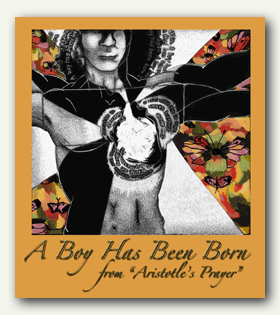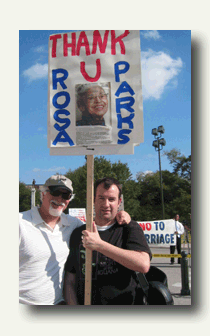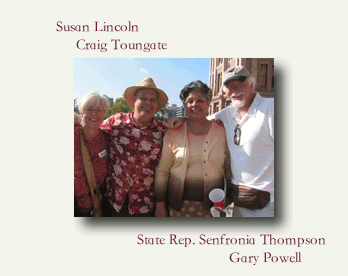When sentiment becomes idea, sometimes a larger creative palette in needed.
Category: GP Original Shows
Joseph Stalin Orchestrates Ukranian Genocide
“I’m Gonna Get My Needs” from Aristotle’s Prayer
by Gary Powell
Americans have hardly heard of the “famine genocide” perpetrated on Ukranian farmers (kulaks) in 1932-33 by Joseph Stalin. With not enough bullets to bring about his solution of collectivism, he chose to confiscate the farmer’s lives by stealing their livestock, seeds, tools and finally by blockading the whole of the Ukraine. Forced collectivism combined with a paranoid leader in Joseph Stalin parented this 20th century crime on humanity called “Holodomor”. Uncle Joe, as President Roosevelt referred to him, was responsible for some 10 million deaths in this genocide of starvation, also called the “Artificial Famine”, and some 40 million total deaths across Russia not including the dead from WWII.
This man and his minions have to be the expressed antithesis of Aristotle’s teachings. Certainly Aristotle’s ethics could embrace our modern knowledge of psychology and the integration of the study of psychology into our cognitive content so that a Joseph Stalin will never happen again!
“At the famine’s height, 25,000 people per day were dying. As the winter wore on, Ukraine became a panorama of horror.” – James Perloff for the New American.
by Gary Powell
Americans have hardly heard of the “famine genocide” perpetrated on Ukranian farmers (kulaks) in 1932-33 by Joseph Stalin. With not enough bullets to bring about his solution of collectivism, he chose to confiscate the farmer’s lives by stealing their livestock, seeds, tools and finally by blockading the whole of the Ukraine. Forced collectivism combined with a paranoid leader in Joseph Stalin parented this 20th century crime on humanity called “Holodomor”. Uncle Joe, as President Roosevelt referred to him, was responsible for some 10 million deaths in this genocide of starvation, also called the “Artificial Famine”, and some 40 million total deaths across Russia not including the dead from WWII.
This man and his minions have to be the expressed antithesis of Aristotle’s teachings. Certainly Aristotle’s ethics could embrace our modern knowledge of psychology and the integration of the study of psychology into our cognitive content so that a Joseph Stalin will never happen again!
“At the famine’s height, 25,000 people per day were dying. As the winter wore on, Ukraine became a panorama of horror.” – James Perloff for the New American.
Joseph Stalin Orchestrates Ukranian Genocide
“I’m Gonna Get My Needs” from Aristotle’s Prayer“
Gary Powell Performs “Aristotle’s Prayer”
Although not complete as a full evening’s theatrical piece, it was my first performance of Aristotle’s Prayer on November 12, 2005. These “In the Studio with Gary Powell” performances have been attracting not only special performers, but a special clientele as well. The breadth of knowledge and experience in the room was particularly noteworthy this Saturday night. In keeping with the professional format of this weblog, I won’t go into details on our guests but to say that the most influencial people and friends in my life were in attendance. I was most honored with their presence and support.
There are only an handful of evenings that one will remember the rest of their life. This was certainly one of those for me.
The lyrics and content of this performance ask a lot from the audience, so I printed the lyrics for everyone to follow if interested. It will be interesting to learn how these very bright people engaged this music. I had four guest readers recite historical information to help set up each song. Ralph Person read about Galileo’s trial before the song, “The Boys in Red” and “How Do I Go On from Here?”. Alice Gerhart read the words of Galileo during “The Boys in Red”. Tom Granger read about the philosophy of Adam Smith before, “Which Side of the Penny is Yours”, and Don Smith from Bryan, Texas, read about the calamitous year of 1929 before the song, “I’m Gonna Get My Needs”, about the demands of Joseph Stalin on the Ukranian farmers. Austin performers, Craig Toungate and Susan Lincoln, joined me to sing the opening tribute to Rosa Parks, “The Spirit of Rosa”.
Moving to the recording studio for Act II, Craig Toungate recreated four songs that he has performed for my productions for Walt Disney Records. I also sang a couple of my songs in the studio that I’ve written for children. The audience, which was more like a homecoming, had to go from Joseph Stalin’s massacres to “Be a Hyena” with only Italian creme cake in between. I think only your friends would be willing to make this jump with you.
My most humble thank you to all my supporters and loved ones in attendance. I promise this whole piece will be complete soon and I hope you’ll come back. If you have questions or comments about the lyrics or content, please feel free to leave them right here on this weblog. This was a night that I, along with Amy, will remember forever. Thank you for helping me launch a new idea, a new performance and a new self.
Pictured from left to right: Janet and Earl Hale (Dallas), Missy and Dick McCarroll (Austin), Cindy and Jay Carter (Dallas), Amy Person and Gary Powell
Thanks to friend and colleague, Larry Seyer, for engineering the session.
Although not complete as a full evening’s theatrical piece, it was my first performance of Aristotle’s Prayer on November 12, 2005. These “In the Studio with Gary Powell” performances have been attracting not only special performers, but a special clientele as well. The breadth of knowledge and experience in the room was particularly noteworthy this Saturday night. In keeping with the professional format of this weblog, I won’t go into details on our guests but to say that the most influencial people and friends in my life were in attendance. I was most honored with their presence and support.
There are only an handful of evenings that one will remember the rest of their life. This was certainly one of those for me.
The lyrics and content of this performance ask a lot from the audience, so I printed the lyrics for everyone to follow if interested. It will be interesting to learn how these very bright people engaged this music. I had four guest readers recite historical information to help set up each song. Ralph Person read about Galileo’s trial before the song, “The Boys in Red” and “How Do I Go On from Here?”. Alice Gerhart read the words of Galileo during “The Boys in Red”. Tom Granger read about the philosophy of Adam Smith before, “Which Side of the Penny is Yours”, and Don Smith from Bryan, Texas, read about the calamitous year of 1929 before the song, “I’m Gonna Get My Needs”, about the demands of Joseph Stalin on the Ukranian farmers. Austin performers, Craig Toungate and Susan Lincoln, joined me to sing the opening tribute to Rosa Parks, “The Spirit of Rosa”.
Moving to the recording studio for Act II, Craig Toungate recreated four songs that he has performed for my productions for Walt Disney Records. I also sang a couple of my songs in the studio that I’ve written for children. The audience, which was more like a homecoming, had to go from Joseph Stalin’s massacres to “Be a Hyena” with only Italian creme cake in between. I think only your friends would be willing to make this jump with you.
My most humble thank you to all my supporters and loved ones in attendance. I promise this whole piece will be complete soon and I hope you’ll come back. If you have questions or comments about the lyrics or content, please feel free to leave them right here on this weblog. This was a night that I, along with Amy, will remember forever. Thank you for helping me launch a new idea, a new performance and a new self.
Pictured from left to right: Janet and Earl Hale (Dallas), Missy and Dick McCarroll (Austin), Cindy and Jay Carter (Dallas), Amy Person and Gary Powell
Thanks to friend and colleague, Larry Seyer, for engineering the session.
An Epiphany of Grace
“A Boy Has Been Born” from Aristotle’s Prayer
by Gary Powell

There is evidence in Aristotle’s writing that he didn’t have much use for “habit”. Finding the best use for our individual nature hardly has any place for habit. We are habituated and institutionalized across almost every thought and behaviour. Aristotle insists our highest good, our virtuous activity, is not something that comes to us by chance. The “pattern of the possible is preferred above the rule” is a lyric in this show which echoes Aristotle’s precept about the personal responsibility of creating our own lives and living well.
This song, “A Boy Has Been Born”, was written one year before my epiphanal conversation with Ralph Person about Aristotelian philosophy and its direct effect on our lives. The charge to myself was to create a lyric that would elucidate the birth of the Christ from a personal and very interpretive perspective without regard to the burden of understanding. This is the song of an individual, who on the eve of disintegration from the long battle, experiences grace which had been long forgotten. This is no song of mysticism. It’s the plain and simple truth from experience which holds both the gift and the burden from having lived an examined life.
by Austin artist, Nadyne Wood.
Creative Commons Attribution-NonCommercial-NoDerivs 2.5 License
by Gary Powell

There is evidence in Aristotle’s writing that he didn’t have much use for “habit”. Finding the best use for our individual nature hardly has any place for habit. We are habituated and institutionalized across almost every thought and behaviour. Aristotle insists our highest good, our virtuous activity, is not something that comes to us by chance. The “pattern of the possible is preferred above the rule” is a lyric in this show which echoes Aristotle’s precept about the personal responsibility of creating our own lives and living well.
This song, “A Boy Has Been Born”, was written one year before my epiphanal conversation with Ralph Person about Aristotelian philosophy and its direct effect on our lives. The charge to myself was to create a lyric that would elucidate the birth of the Christ from a personal and very interpretive perspective without regard to the burden of understanding. This is the song of an individual, who on the eve of disintegration from the long battle, experiences grace which had been long forgotten. This is no song of mysticism. It’s the plain and simple truth from experience which holds both the gift and the burden from having lived an examined life.
by Austin artist, Nadyne Wood.
Creative Commons Attribution-NonCommercial-NoDerivs 2.5 License
An Epiphany of Grace
“A Boy Has Been Born” from Aristotle’s Prayer“
Celebrate Rosa Parks (1913-2005)
“The Spirit of Rosa” from Aristotle’s Prayer
“The Spirit of Rosa” from Aristotle’s Prayer
by Gary Powell
I have fielded many suggestions for 
songs featuring our great women manumitters.
Susan B. Anthony, Elizabeth Cady Stanton, Sojouner Truth, Harriet Tubman, Ayn Rand, Mother Teresa, and Rosa Parks were all at the top of people’s lists from my informal survey.
The seminal events accredited to great emancipators are seldom born in a single instant. Rosa Parks’ simple expression of truth over power was not a simple knee-jerk reaction. By her own accounts, her awakening of unconscious pain happened in a single instant. However, the crime of treason against humanity she had carried throughout her life. Rosa Parks’ triumphant moment of reason over darkness has earned her place not in the back of the bus but at the front of “Aristotle’s Prayer”.
Today, I performed “The Spirit of Rosa” for the first time with Craig Toungate and Susan Lincoln at the rally on the State of Texas Capitol steps opposing “Proposition 2” which would amend the Texas state constitution eliminating any legal rights for gay marriages.
by Gary Powell
I have fielded many suggestions for 
songs featuring our great women manumitters.
Susan B. Anthony, Elizabeth Cady Stanton, Sojouner Truth, Harriet Tubman, Ayn Rand, Mother Teresa, and Rosa Parks were all at the top of people’s lists from my informal survey.
The seminal events accredited to great emancipators are seldom born in a single instant. Rosa Parks’ simple expression of truth over power was not a simple knee-jerk reaction. By her own accounts, her awakening of unconscious pain happened in a single instant. However, the crime of treason against humanity she had carried throughout her life. Rosa Parks’ triumphant moment of reason over darkness has earned her place not in the back of the bus but at the front of “Aristotle’s Prayer”.
Today, I performed “The Spirit of Rosa” for the first time with Craig Toungate and Susan Lincoln at the rally on the State of Texas Capitol steps opposing “Proposition 2” which would amend the Texas state constitution eliminating any legal rights for gay marriages.
Celebrate Rosa Parks (1913-2005)
“The Spirit of Rosa” from Aristotle’s Prayer“
Adam Smith Authors The Wealth of Nations
“Which Side of the Penny is Yours?” from Aristotle’s Prayer
by Gary Powell
Many contemporary economists believe there is a modern-day “corporate betrayal” of Adam Smith’s economics philosophy. I was struck with the idea that the market economy works only when producers of products have a level playing field free from special interests from any large concentrations of wealth, power and influence and that the fruits of one’s labor should go to the producer. Thusly, I penned the song which commemorates Adam Smith’s penny and the idea that a good portion of that earned penny should belong to the person who produced the work.
In 1751, Smith was appointed Professor of Logic at Glasgow University, transferring in 1752 to the Chair of Moral Philosophy. His lectures covered the field of ethics, rhetoric, jurisprudence and political economy, or “police and revenue”. That said, the philosophy related in the lyrics of the song, “Which Side of the Penny is Yours”, are Adam Smith’s. The “earthy” fashioned lyric is mine and would probably not have been approved knowing Adam Smith’s puritanical leanings. This is clearly my interpretation and no disrepect is meant for Adam Smith’s work which has so influenced and helped liberate the individual human being.
To learn more, please visit The Adam Smith Institute
by Gary Powell
Many contemporary economists believe there is a modern-day “corporate betrayal” of Adam Smith’s economics philosophy. I was struck with the idea that the market economy works only when producers of products have a level playing field free from special interests from any large concentrations of wealth, power and influence and that the fruits of one’s labor should go to the producer. Thusly, I penned the song which commemorates Adam Smith’s penny and the idea that a good portion of that earned penny should belong to the person who produced the work.
In 1751, Smith was appointed Professor of Logic at Glasgow University, transferring in 1752 to the Chair of Moral Philosophy. His lectures covered the field of ethics, rhetoric, jurisprudence and political economy, or “police and revenue”. That said, the philosophy related in the lyrics of the song, “Which Side of the Penny is Yours”, are Adam Smith’s. The “earthy” fashioned lyric is mine and would probably not have been approved knowing Adam Smith’s puritanical leanings. This is clearly my interpretation and no disrepect is meant for Adam Smith’s work which has so influenced and helped liberate the individual human being.
To learn more, please visit The Adam Smith Institute
Adam Smith Authors The Wealth of Nations
“Which Side of the Penny is Yours?” from Aristotle’s Prayer“
